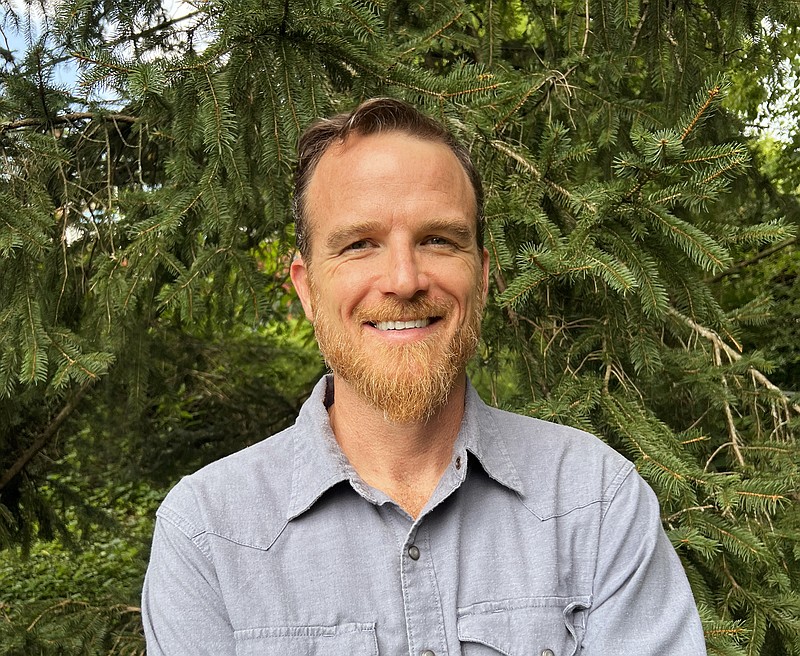Less than 1% of the nearly 275 million acres of privately owned forestland in the United States benefits from the growing market for voluntary carbon offsets available from such woodlands.
Chattanooga forester Josh Fain is eager to expand that share by opening more of the smaller forest tracts in the Southeast for the growing carbon offset market.
Fain has launched LandYield and is working with North America's leading developer and supplier of forest carbon offsets, Finite Carbons, to allow landowners with anywhere from 40 to 5,000 acres to generate revenues for setting aside forests from development to help absorb and offset other carbon releases.
"The innovative and complementary skill sets of LandYield and Finite Carbon are ideally suited to provide assurance to landowners that they're enrolling their land in a carbon program designed to provide financial and environmental benefits for the long-term," Fain said in an announcement of the new venture. "Our program provides landowners the flexibility to continue to utilize their land while creating a transparent and attractive revenue stream."
LandYield, which will initially operate in 13 states in the South, provides payments to private forest landowners to defer commercial timber harvests and increase the carbon stored on their lands. Enrolled landowners commit to growing stands for 20 years and then maintaining that stocking for an additional 20 years.
With more precipitation and denser woodlands than in the western portion of the United States, the forestland in the South is particularly effective in helping offset the carbon releases from the burning of fossil fuels and other releases of greenhouse gases linked with climate change, Fain said.
Morgan Stanley estimates the voluntary carbon-offsets market will grow from around $2 billion in 2022 to about $100 billion in 2030 and around $250 billion by 2050 as more companies and government agencies move to decarbonize their operations and seek ways to offset their carbon output.
Find out more
More information about the carbon offset payment program is available at landyield.com.
To reach the sustainability goals in the 2015 Paris Climate Accords and various national and company-level targets, Morgan Stanley Research estimates the world must remove at least 1 gigaton of carbon dioxide per year by 2030, based on analysis of data from the Network for Greening the Financial System.
"The carbon-offsets market has evolved rapidly, prompting increasing interest from investors and corporates," Carolyn L. Campbell, the head of environmental, social and governance fixed income research at Morgan Stanley, said in a recent report.
The carbon offset benefits paid by LandYield are verified under the American Carbon Registry's peer-reviewed methodology. LandYield leverages Finite Carbon's Core Carbon platform to reduce measurement and verification costs and deliver more value to landowners. The platform allows LandYield to provide eligible landowners with immediate estimates of the amount of revenue they can potentially earn.
"For more than a decade, Finite Carbon has played a leading role in advancing carbon markets in the United States, developing best practices, driving innovation and technological advancement to benefit landowners and buyers of natural climate solutions," Sean Carney, CEO of Finite Carbon, said in a statement. "We're excited to team up with LandYield to create long-term, mutually beneficial relationships with a broad range of landowners by providing a financial incentive for their environmental stewardship so people can enjoy their land for generations to come."
A native of Dalton, Georgia, Fain grew up in Chattanooga, studied forestry at the University of Georgia and worked for the U.S. Forestry Service for more than a decade on wildfire management research before starting work for the Climate Trust in Portland, Oregon. He moved back to Chattanooga in 2019 and officially started LandYield last week.
Creating family landowner access to carbon markets, previously only accessible to larger, institutional landowners, allows the potential for carbon revenues to help more people and support rural economies, Fain said. Participating landowners also help maintain recreational values, protect water resources and improve habitat quality on enrolled lands.
Finite Carbon developed Core Carbon using remote sensing technology enabled by satellite imagery with data from the U.S. Forest Service to measure and monitor forest growth. This information is used to calculate the specific carbon dioxide emission reductions and removals that can result from improved forest management practices on a given piece of land.
LandYield benefits from the administrative support of Mercuria Energy, one of the world's largest independent energy and commodity groups, for expertise in sales, operations and risk management.
(READ MORE: Chattanooga official defends proposed tax incentive policy while groups cite concern)
Landowners have the flexibility to enroll only a portion of their forestlands in the program as well as the ability to pursue other commercial activities, such as leasing hunting rights and collecting nontimber forest products, Fain said.
The program is initially open to eligible landowners in the Southeastern United States, which includes up to 120 million acres of family-owned forest lands in Alabama, Arkansas, Florida, Georgia, Kentucky, Louisiana, Mississippi, North Carolina, Oklahoma, South Carolina, Tennessee, Texas and Virginia. There are plans to expand the program to other regions in the U.S. in the future.
Contact Dave Flessner at dflessner@timesfreepress.com or 423-757-6340.
